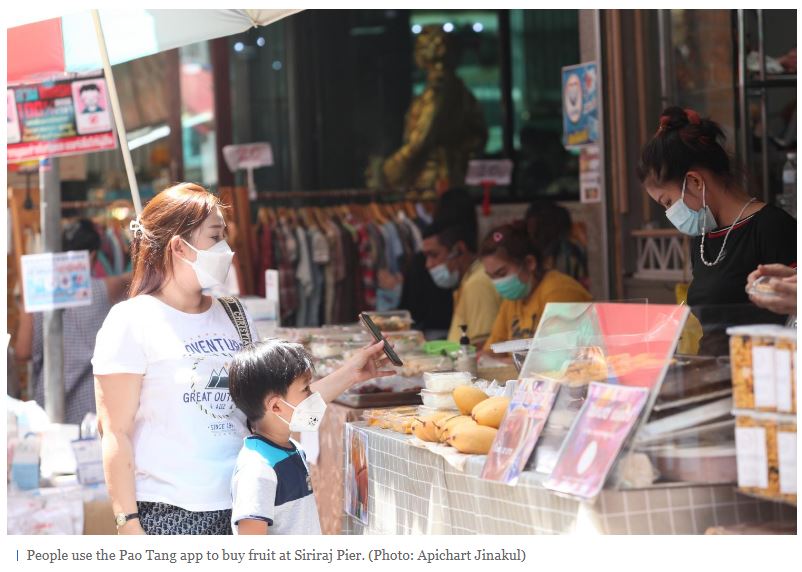Thailand: Study shows shift to e-payment
The country’s use of cash is expected to decline by 4% in 10 years and 15% in 20 years as more Thais shift to e-payment, according to a Bank of Thailand paper.
The central bank predicts cash usage will continue to decline over the long term, replaced by e-payment. In 2030, cash usage is expected to dip by 4% or 25 billion baht from 2020, then fall by 15% or 108 billion in 2040. The paper surveyed people’s daily payments.
The rising popularity of e-payment is in line with changing consumer behaviour, especially during the government’s lockdown to contain new Covid-19 infections. Thais also participated in the government’s financial relief schemes launched via Pao Tang, a mobile application developed by Krungthai Bank.
The paper surveyed 6,020 respondents nationwide during February to April 2021, prior to the third wave of the pandemic. It found 90.5% of respondents experienced using an e-payment service over the past two years. Some 91.1% owned smartphones and used them to browse the internet.
This suggests most respondents have devices capable of using an e-payment channel and are familiar with the channels.
Mobile and internet banking channels are the most popular e-payment formats, according to the survey. Some 62% of respondents use these channels for money transfer to third parties, 51.7% for buying goods and services at sales points and 50.4% for purchasing goods and services from online shops.
The Pao Tang app is most popular as a payment channel at the point of sale, according to 58.9% of respondents.
The survey found 61.5% of respondents participated in the government’s money transfer schemes to support liquidity among the public during the pandemic.
Some 40.4% of respondents participated in the government’s co-payment scheme, while 37.9% took part in the “We Win” scheme.
However, most respondents (64.8%) felt they would return to using cash for financial transactions after the expiration of the government’s money transfer schemes, while 27.4% would continue to use the Pao Tang app.
“With this scenario, it shows government policy plays a key role in encouraging Thais to use e-payment, especially for government schemes,” according to the paper.
However, some Thais cannot access e-payment because they do not own a smart device. The survey found 18% of respondents only use cash to make payments.
Source: https://www.bangkokpost.com/business/2235823/study-shows-shift-to-e-payment


 Thailand
Thailand




